Life is like in prison: the coast of Japan, affected by the 2011 tsunami, was surrounded by a 12-meter wall
Categories: Asia | Catastrophes | Design and Architecture
By Pictolic https://pictolic.com/article/life-is-like-in-prison-the-coast-of-japan-affected-by-the-2011-tsunami-was-surrounded-by-a-12-meter-wall.htmlSeven years have passed since the disaster caused by the earthquake and tsunami that destroyed several cities on the northeast coast of Japan at once. Local residents are restoring their homes, and at the same time getting used to the new giant structures — they were erected to protect people from future cataclysms.
One of the worst natural disasters in history claimed the lives of almost 18 thousand people, about 2.5 thousand were missing, and Japan suffered damage in the amount of $ 309 billion.
Reuters photographer Kim Kyung-hoon visited several cities at once to highlight how residents of the coastal strip are coping with the consequences of the disaster seven years later.
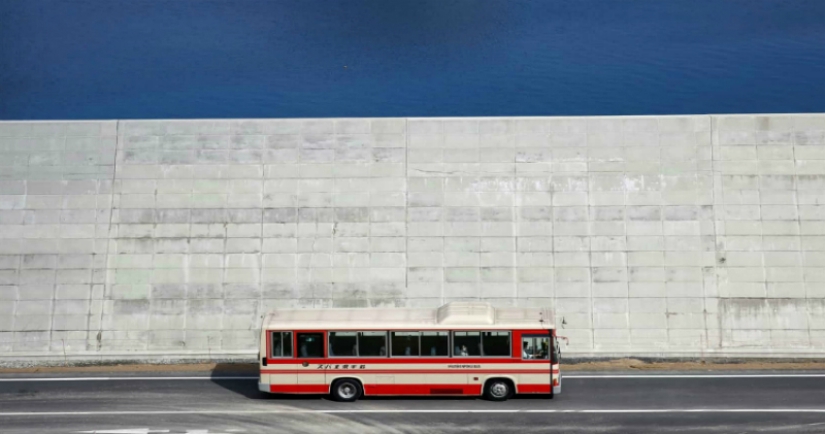 Source: Guardian
Source: Guardian
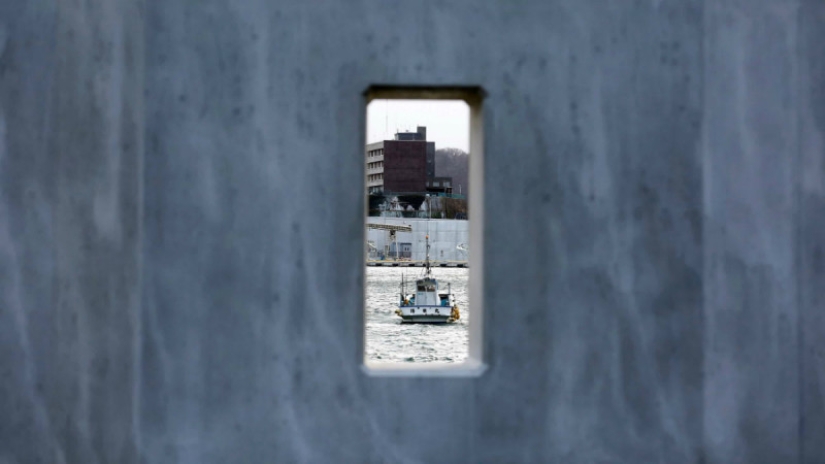
Hiroyasu Kawai, researcher at the Institute of Harbors and Airports in Yokosuka, near Tokyo
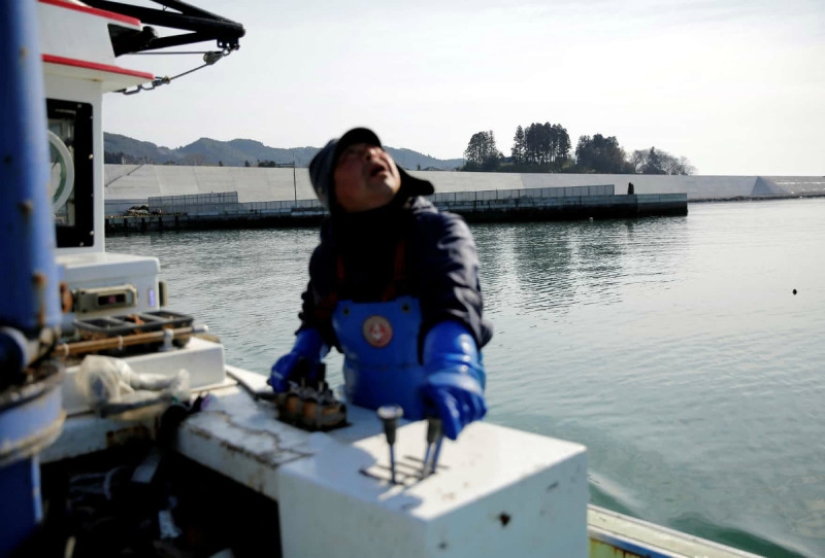 During the earthquake in 2011, fisherman Atsushi Fujita, as usual, was working on the seashore, when suddenly a huge black wave covered his city, Rikuzentakata, killing almost 2 thousand people.
During the earthquake in 2011, fisherman Atsushi Fujita, as usual, was working on the seashore, when suddenly a huge black wave covered his city, Rikuzentakata, killing almost 2 thousand people.
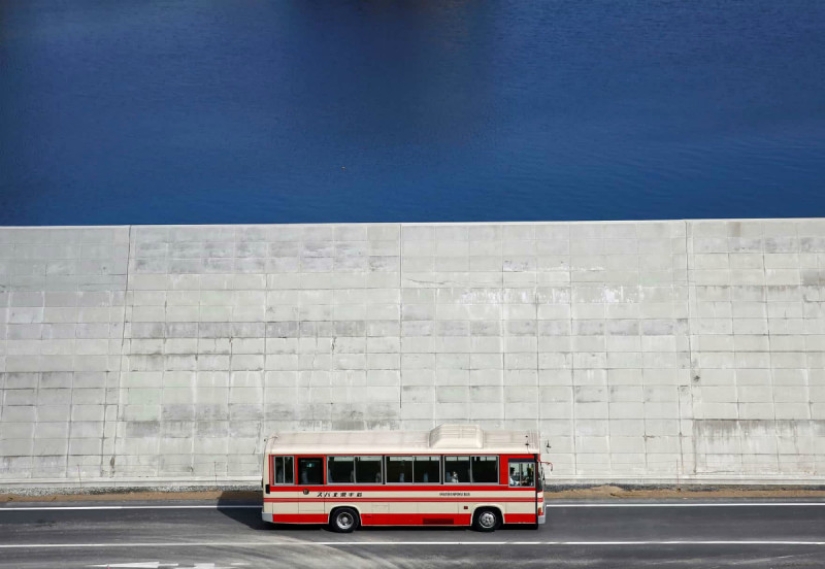 Since then, a huge wall has been erected around the city.
Since then, a huge wall has been erected around the city.
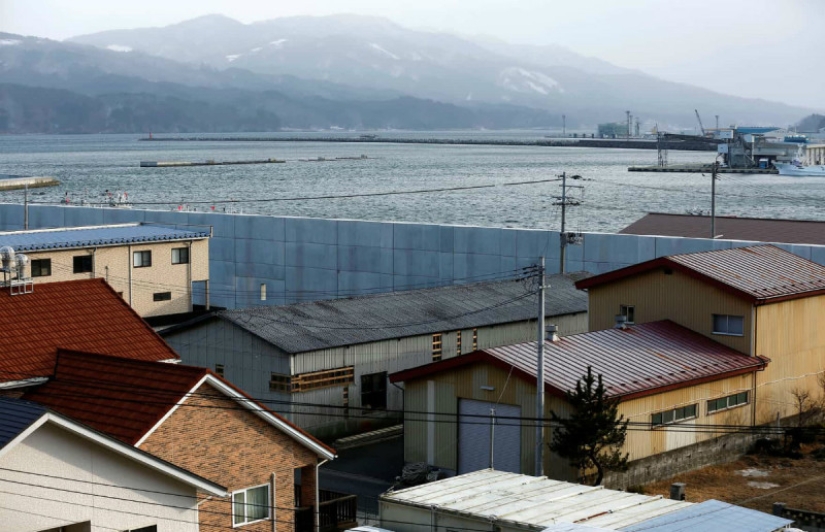 Residential and commercial buildings behind the sea wall in the port of Miyako.
Residential and commercial buildings behind the sea wall in the port of Miyako.
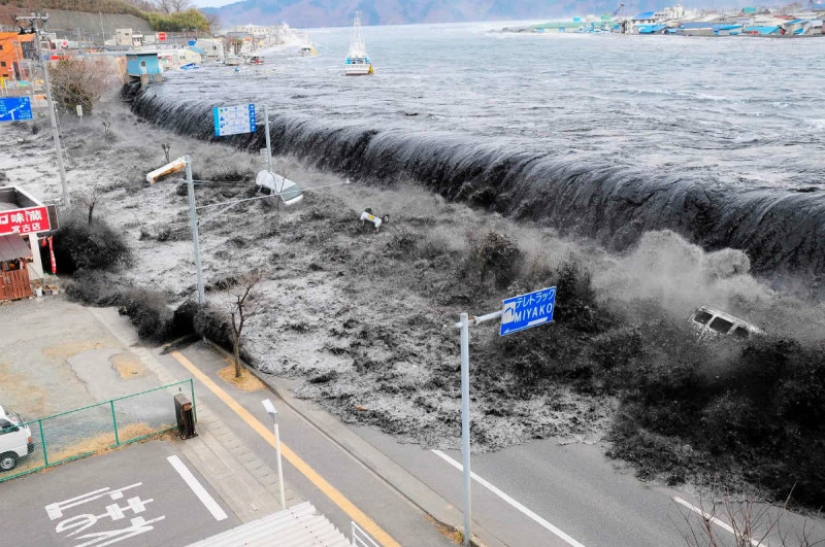 March 2011: Tsunami waves cover a street in Miyako. Photo by Mainichi Shimbun for Reuters.
March 2011: Tsunami waves cover a street in Miyako. Photo by Mainichi Shimbun for Reuters.
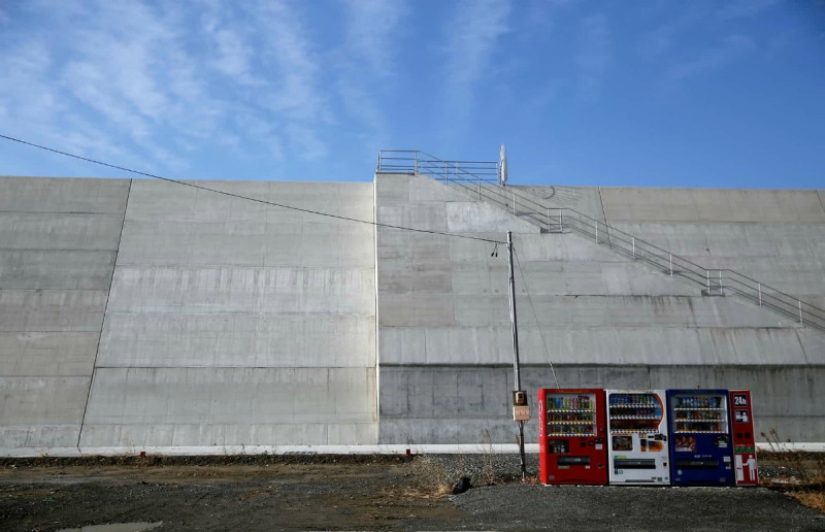 Vending machines at the wall in Hirota Bay in Rikuzentakata. A 12-meter concrete wall replaced a four-meter breakwater flooded during the tsunami.
Vending machines at the wall in Hirota Bay in Rikuzentakata. A 12-meter concrete wall replaced a four-meter breakwater flooded during the tsunami.
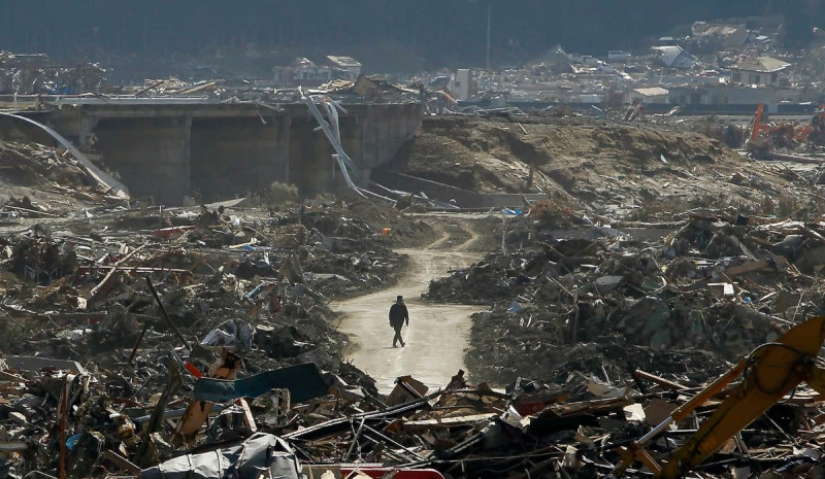 2011: the aftermath of the Rikuzentakata disaster. Photo by Aly Song for Reuters.
2011: the aftermath of the Rikuzentakata disaster. Photo by Aly Song for Reuters.
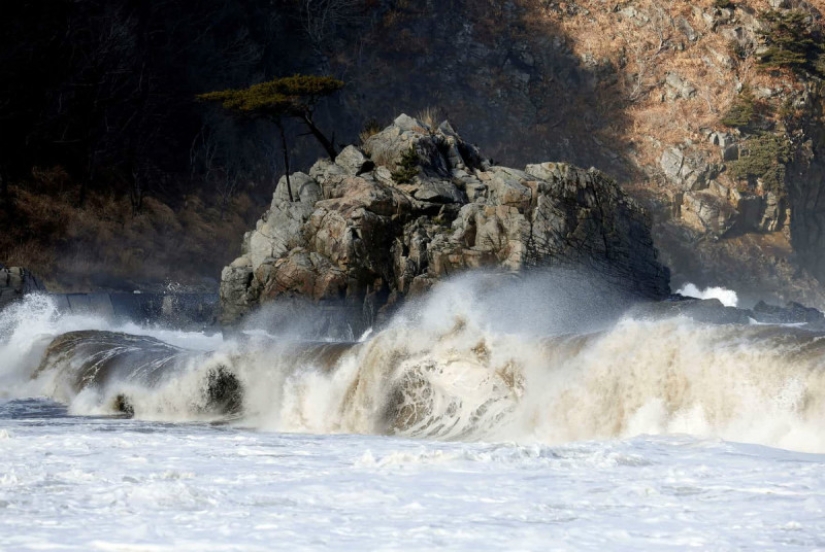 The earthquake and tsunami, which reached 30 meters in height in some areas, killed almost 18,000 people across Japan and caused a major accident at the Fukushima power plant.
The earthquake and tsunami, which reached 30 meters in height in some areas, killed almost 18,000 people across Japan and caused a major accident at the Fukushima power plant.
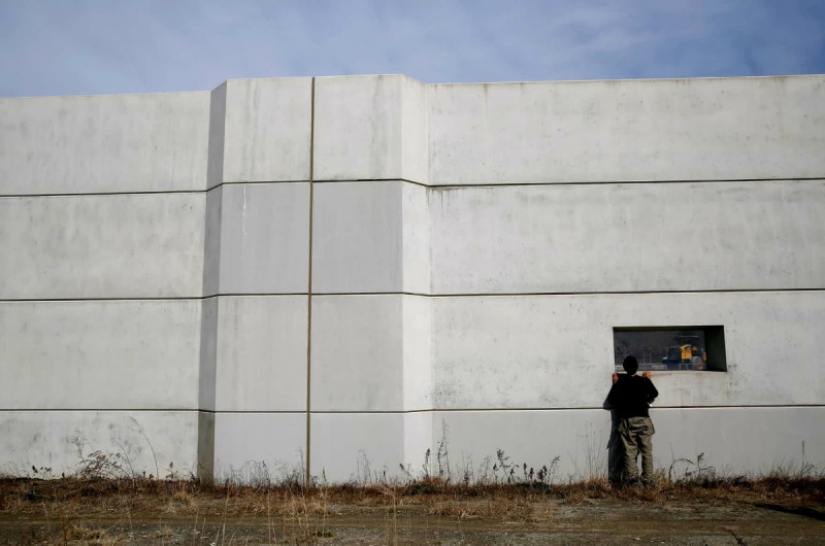 Many residents initially welcomed the installation of the wall, but as time passed, they began to express more and more dissatisfaction, complaining, in particular, that they were almost not consulted at the planning stage — for this reason, the construction of walls today makes residential and commercial construction difficult.
Many residents initially welcomed the installation of the wall, but as time passed, they began to express more and more dissatisfaction, complaining, in particular, that they were almost not consulted at the planning stage — for this reason, the construction of walls today makes residential and commercial construction difficult.
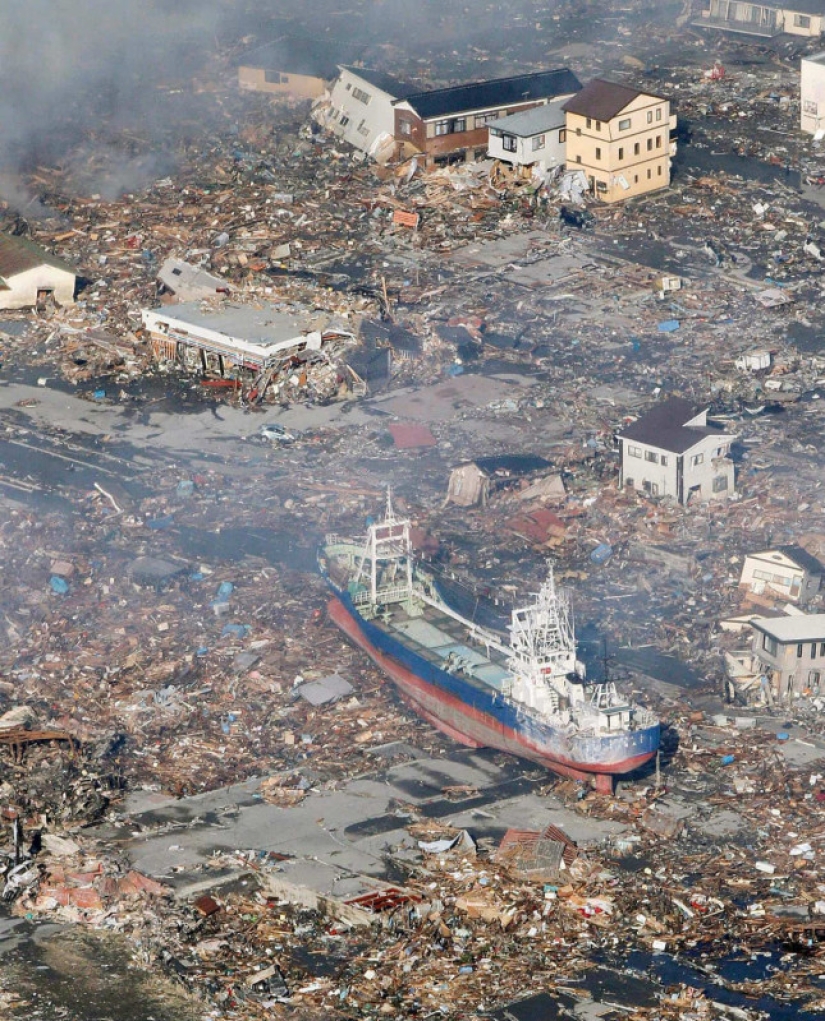 A ship washed up on the streets of Kesennuma in 2011. Photo by Kyodo for Reuters.
A ship washed up on the streets of Kesennuma in 2011. Photo by Kyodo for Reuters.
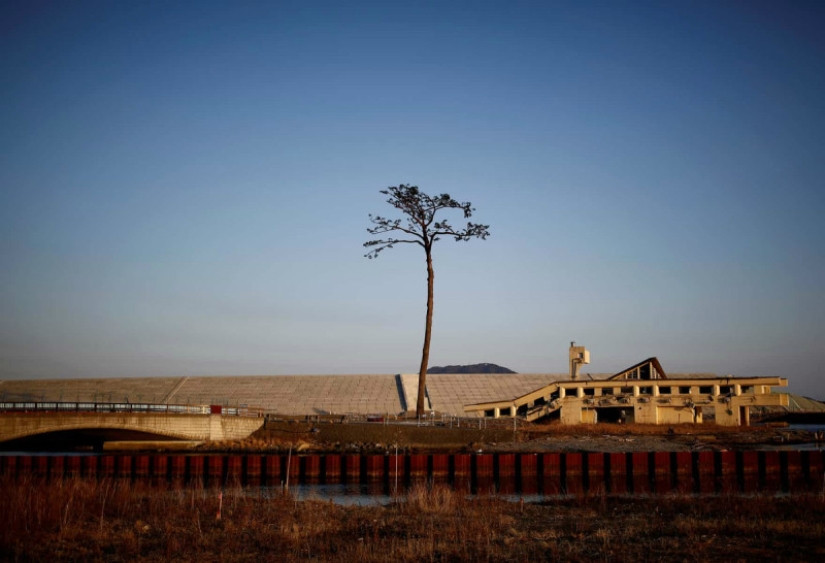 The "Miracle Pine" symbolizing hope and recovery - it survived the 2011 tsunami — stands today next to the damaged building in front of the newly erected wall in Rikuzentakata.
The "Miracle Pine" symbolizing hope and recovery - it survived the 2011 tsunami — stands today next to the damaged building in front of the newly erected wall in Rikuzentakata.
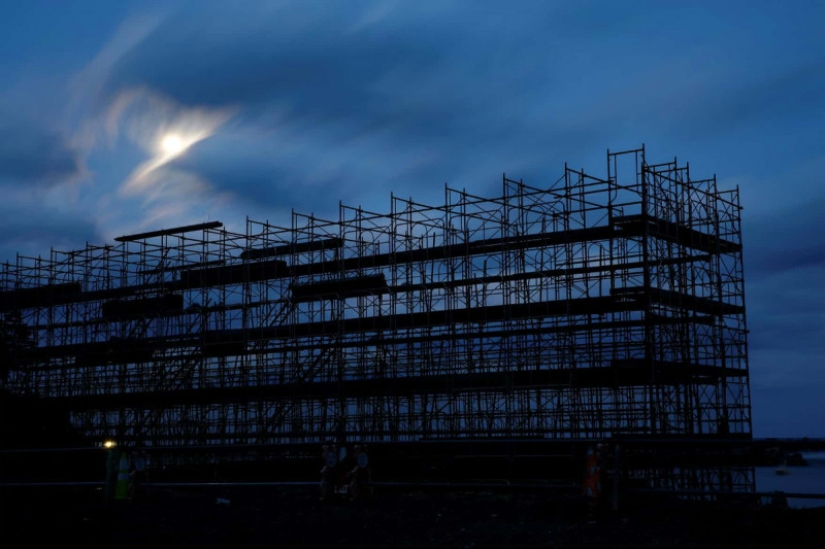 After the disaster, some cities banned the construction of housing in a flat area near the coast and relocated residents to higher lands.
After the disaster, some cities banned the construction of housing in a flat area near the coast and relocated residents to higher lands.
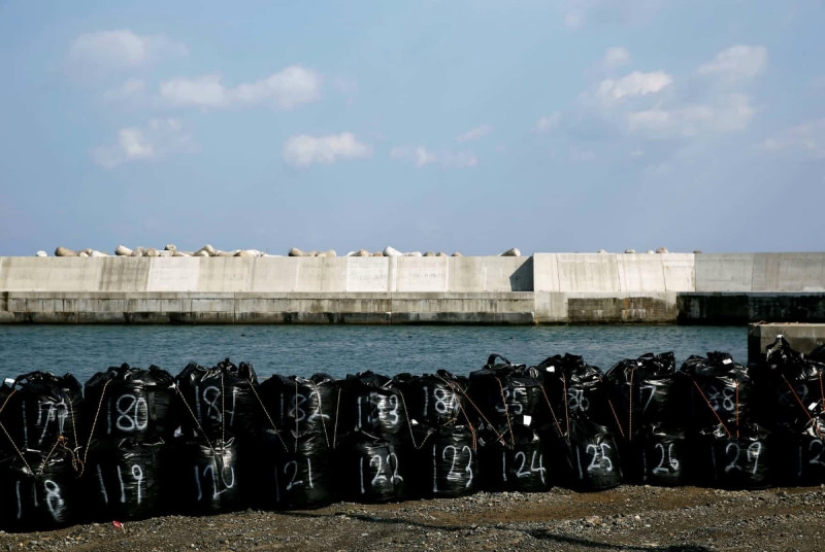 Many residents complain that the walls scare away tourists.
Many residents complain that the walls scare away tourists.
Reiko Iijima, a tourist from Central Japan
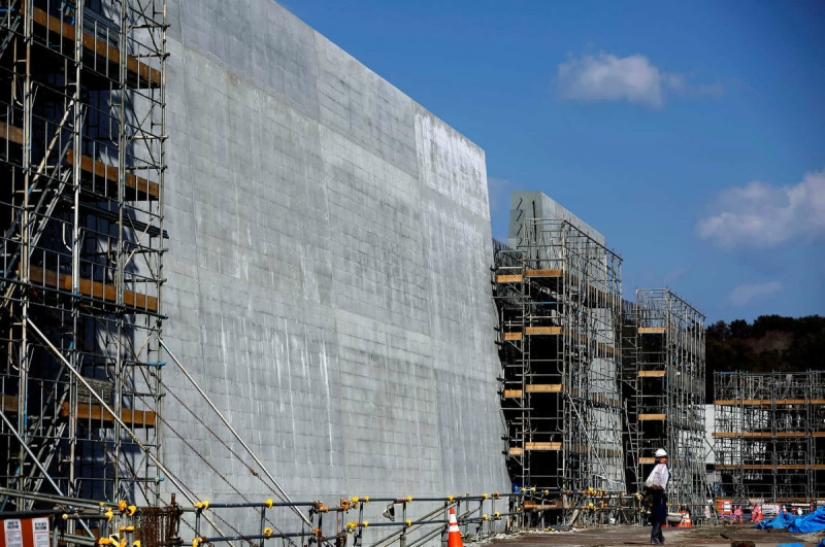 Erecting a wall to replace tsunami-flooded breakwaters. The total length of the walls is about 400 kilometers, and the construction cost was 9.1 billion dollars.
Erecting a wall to replace tsunami-flooded breakwaters. The total length of the walls is about 400 kilometers, and the construction cost was 9.1 billion dollars.
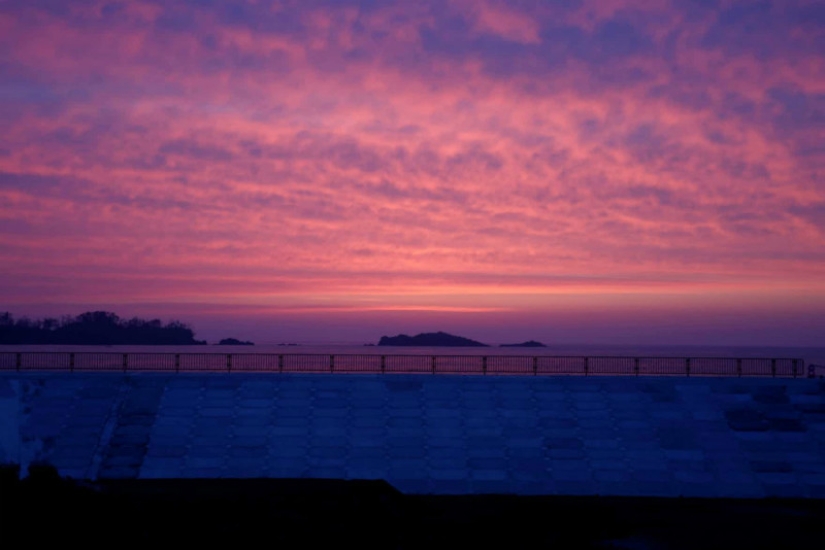 Dawn on the background of a built wall on the beach in Kesennuma, Miyagi Prefecture.
Dawn on the background of a built wall on the beach in Kesennuma, Miyagi Prefecture.
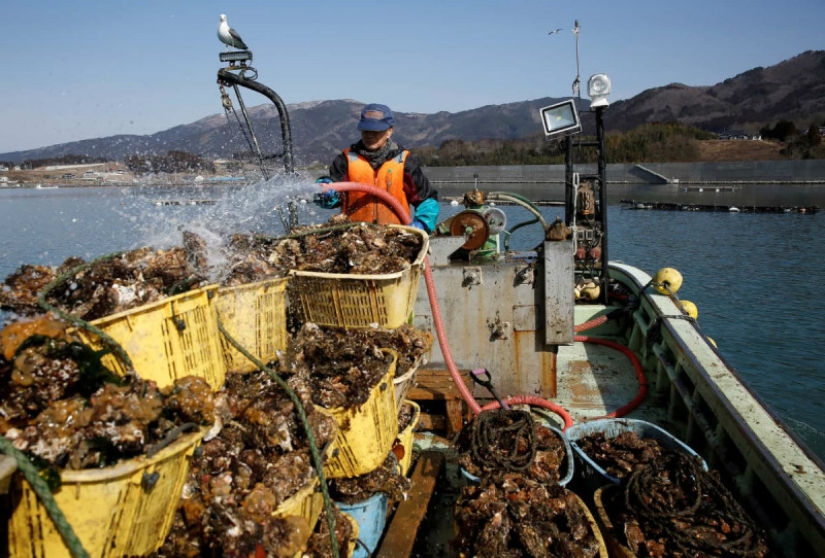 Fisherman Fujita says that the tsunami even improved oyster fishing in the affected area, washing out accumulated sediments and shaking the seabed. However, the walls erected not so long ago may have a negative impact on future production, as they can block natural water flows from land.
Fisherman Fujita says that the tsunami even improved oyster fishing in the affected area, washing out accumulated sediments and shaking the seabed. However, the walls erected not so long ago may have a negative impact on future production, as they can block natural water flows from land.
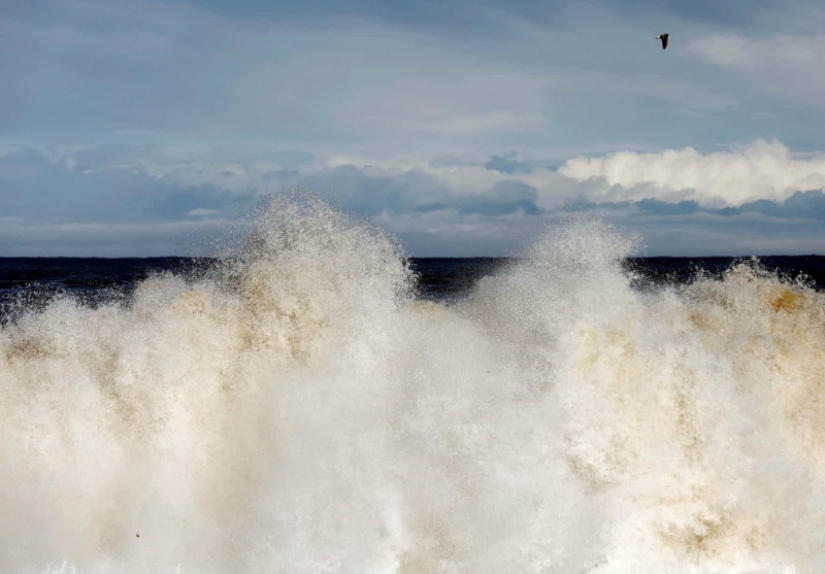 Many have difficulty getting used to cluttering walls.
Many have difficulty getting used to cluttering walls.
Sotaro Usui, local resident and head of a tuna mining company
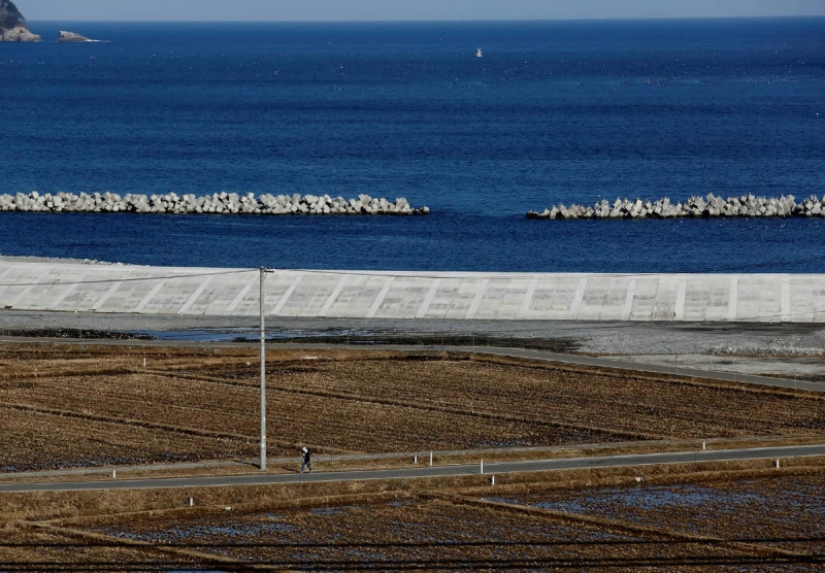
Keywords: Earthquake | Tsunami | Japan
Post News ArticleRecent articles

It's high time to admit that this whole hipster idea has gone too far. The concept has become so popular that even restaurants have ...

There is a perception that people only use 10% of their brain potential. But the heroes of our review, apparently, found a way to ...
Related articles

Yuuki Morita is a promising young sculptor and artist from Japan. The source of inspiration for him was nature, its diversity and ...

Beautiful decoration of dishes is no less important than its taste. People first "eat" with their eyes, and only then try what is ...

Japanese artist gives zest to the ancient engravings in the style of Ukiyo‑e, he turns the traditional Japanese illustrations ...

New Year's is a time to surprise and delight loved ones not only with gifts but also with a unique presentation of the holiday ...